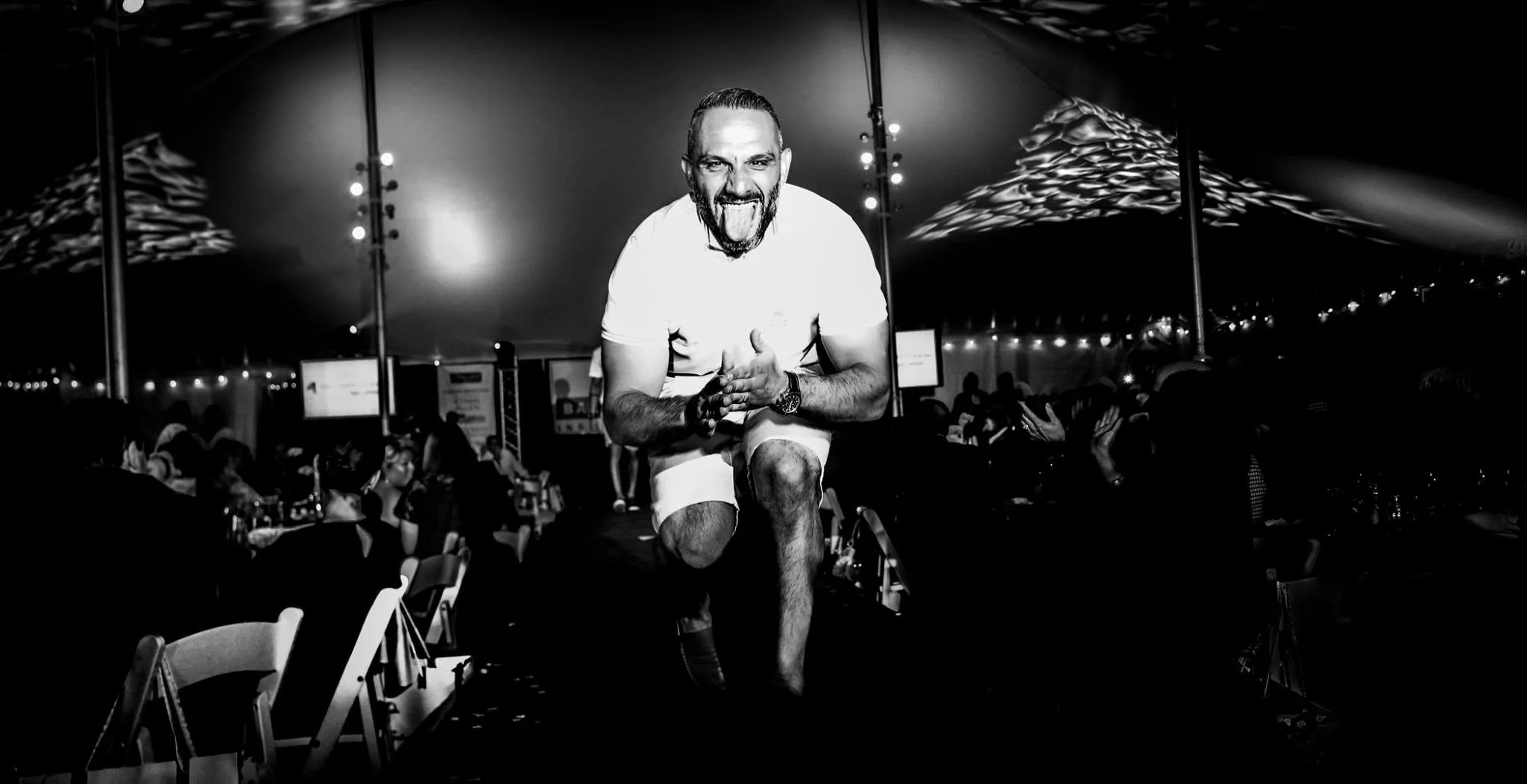
Articles
Should You Choose Relationships Over Growth?
March 4, 2022

Is there a right time to prioritize building customer and team relationships over the growth of your business?
According to DSM, the resounding answer is, "yes!"
DSM is a full-service marketing agency in New Jersey. But the president and founder, Darren Magarro, calls it a results agency. Because they help clients solve marketing problems with creative, data-driven solutions.
Back in 2013, the business exploded thanks to digital advertising. And over the next two and half years, the company went from five to 22 employees.
But that’s when Darren hit the breaks. He slowed down hiring and focused on the relationships that built the business. And today, they’re still a thriving and growing company.
Earlier last year, we invited Darren to the Fastest Growing Companies podcast. He talked about why they chose relationships over massive growth. And he shared some of the most important lessons he learned from running the business.
DSM knew who they didn’t want to be
Before Darren founded DSM, he was a media buyer living in Manhattan. And as a media buyer, he oversaw the media-buying process for advertising campaigns.
Darren says the job was like being a full-time negotiator for huge brands, including Lexus, Puma, and Verizon Wireless. And while it was the perfect opportunity to learn about advertising and marketing, it was also challenging work that required a ton of traveling.
So, he decided to leave Manhattan and head back home to New Jersey. There, he worked for a marketing agency for about six months. But he says it just didn’t feel right.
“There was a lot of back and forth,” Darren explained, “The creative team wasn’t [working well] with the account team. And I thought, 'there’s got to be a better way to do this.'”
So, Darren went to the agency owners and asked if he could buy his work laptop. He grabbed a six-pack of beer and a rotisserie chicken next. And 14 years ago, from his front porch, Darren started a marketing agency built off of strong team relationships and clear results.
Darren said that many of their first clients were local businesses, friends, and family. And even though he calls them “pity clients,” Darren was always serious about producing quality work.
He contributes this dedication to knowing his values from the get-go. But his approach to finding them was a little different. “One of the things we learned early on is that it’s important to understand what you don’t want to be,” Darren explained.
Darren and his former partner knew they didn't want to let their clients down. So they hustled for them, created successful campaigns, and delivered results. Their values — including building relationships and producing quality work — endured over the years.
According to Darren, it’s hard to pinpoint who you want to be when you first start a business. But it’s easy to list what you don’t want to be. That way, you end up singling out the values you want to represent over time.
“When you understand what you don’t want to be, you end up honing in on the things you do want to be. Because they just naturally fall into place.”
<blockquoteauthor>Darren Magarro, president and founder of DSM<blockquoteauthor>
They didn’t build to sell
When Darren started DSM, he never planned an eventual exit (via a sale). Instead, he solely focused on supporting his local community by building a thriving business for the long haul.
Part of that plan was finding local clients. So, he and his former partner built a strong referral network in New Jersey (that's where they operate). And they grew rapidly by word of mouth.
“In our first year, we did about $80K in revenue.” Darren explained, “But by year two, our top-line [revenue] was $500K. And I think we did our first $1M around three or four years.”
Darren says it took a lot of sweat equity to make that growth happen. But more importantly, it took building relationships and a business that you didn’t want to sell and get away from.
“I never built the company to sell it. We’ve always been very focused on doing good work and building relationships.”
As a result, they’ve built strong relationships with their clients, employees, and the community they serve. They continually focus on producing good work (instead of focusing on eventual selling the company). And when growth gets in the way of that, Darren hits pause and returns to their roots.
They have a balanced leadership team
According to Darren, his sweet spot was building relationships and ensuring clients were successful.
But once DSM quadrupled in size, Darren also knew it was time to find leaders who complemented his skills. And the first hire he needed was a numbers person. So, in 2014, he hired Charlene Wingfield as their CFO.
Darren told us that finding Charlene was one of those chance encounters. They actually used to walk home from school together back in the day. Charlene went on to build a career with JP Morgan. Then, she took time off to start a family. And just when DSM needed a part-time CFO, she was also looking for a new opportunity.
.gif)
So, Darren added her to the leadership team. She helped strategically guide the financial decisions for DSM while doing the accounting and planning for the company’s financial future.
Then, Darren hired Zinka Ramdedovic to head up their operations in 2017. At the time, he needed someone to manage the day-to-day tasks. Today, Zinka is their COO.
“Zinka is really good with understanding how all the pieces fit into place,” Darren shared. “I’m not good at that [aspect of running a business].” She helps balance out his relationship and business development skills.
Since delegating these tasks to experts, Darren says the company has been able to improve efficiency and continually grow revenue (without dramatically increasing headcount). All he had to do was recognize that he couldn’t “do everything” as a leader.
They found the right-size business
When Darren talks about their huge growth in 2013, he allocates a lot of that success to sheer fate. “There was a lot of serendipity involved,” Darren shared. “Because I had chance encounters with many people who knew how to take the business digitally.”
And once he hired those people, Darren said the digital advertising part of the agency took off. Their small team of five turned into 22 employees over the next two and half years. But once the team hit that number, Darren decided it was time to slow the growth.
“I knew the sky was the limit,” Darren explained, “But when I got there, I realized there were also new problems that came with it. And I didn’t want to deal with [those issues].”
So, he slowed down his hiring. He focused on providing excellent results with the team he had. And he learned a crucial entrepreneurial lesson: businesses are not one size fits all.
“I was getting further away from the [clients] that had trusted me,” Darren explained. And that’s when he knew it was more important to choose relationships over growth. So he pulled back the reins and focused on the community he had built around him.
They put their people first
When you listen to Darren talk about his team, it’s evident that he prioritizes his employees’ needs. And he believes that part of their success as a company comes from putting people first.
“Being empathetic to other people’s needs and putting them first has an intentional gravitational pull,” Darren told us. “[Where] people want to follow what you’re doing.”
Plus, he says having a caring culture is the best perk for his employees. “The DSM office has a pool table, a Nintendo, and a kegerator,” he explained. “But our [culture] is what we do for [our team] when they’re going through hardship.”
For example, when a team member experienced a medical issue, DSM gathered people to help hang their Christmas lights. It was a small gesture, but it was an example of what makes their family-style culture work. And, as a result, employees feel closer to their work and the effort they put in.
Plus, Darren is all about giving back outside of the office, too. He coaches a youth football team in his hometown, and he’s a board member for an animal charity.
“My mother-in-law always told me if I was going to [build this company], I needed to give back as well,” Darren shared. “It’s something she’s done for years with [the family] business, and I felt it was important to do, too.”
By establishing himself and his company as a leader in the community, Darren continues to expand his local network. He earns clients’ respect by delivering actual marketing results. And it’s a cycle that continues to fuel the business.
The takeaway here? Building a fast-growing company takes more than just increasing top-line revenue. It also takes a lot of heart. And if you incorporate just a few of these insights from Darren, you’ll see that results are about more than just money.
Similar Blog Posts






.jpeg)




